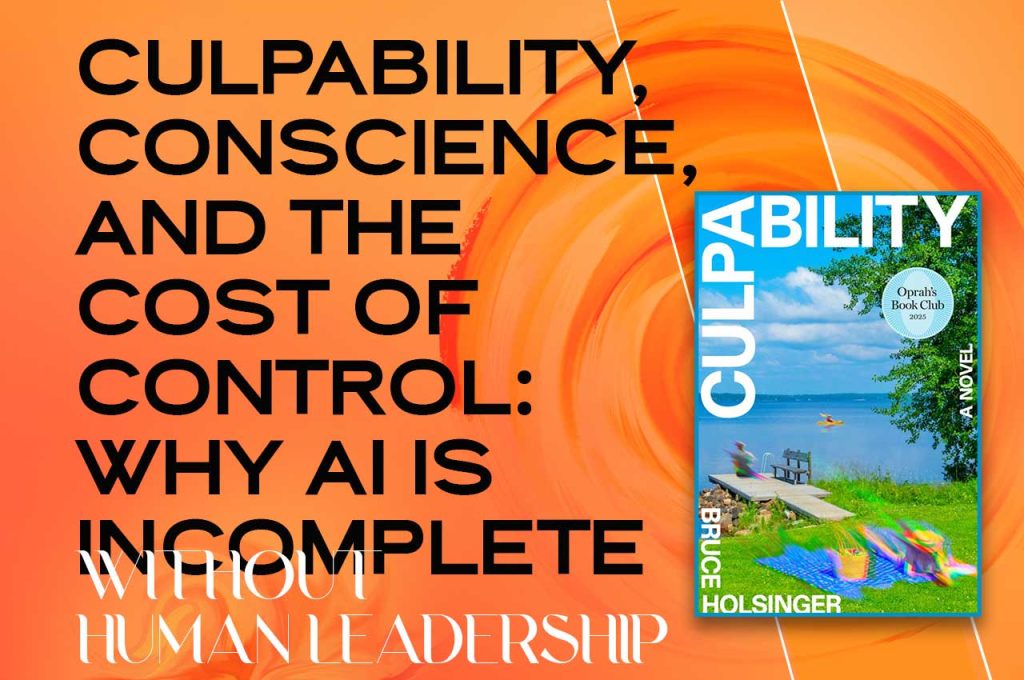
Culpability, Conscience, and the Cost of Control: Why AI Is Incomplete Without Human Leadership

Artificial Intelligence is changing everything. It is transforming how we work, communicate, make decisions, and lead. But as I finished reading Culpability, a novel that explores the moral tensions between technology and human behavior, I found myself thinking less about machines and more about what it means to be human.
The story centers on Lorelei, an AI developer who spends years building systems designed to predict and perfect human behavior. When tragedy strikes and her son Charlie is killed in a car accident, she is forced to face the consequences of her work. In the aftermath, Lorelei chooses truth over secrecy and writes a book to help others understand the ethical blind spots of artificial intelligence.
The novel ends by rejecting the illusion that life can ever be neatly managed by algorithms. It reminds us that intelligence, whether human or artificial, is never enough by itself. Without awareness, conscience, and moral leadership, it becomes hollow.
That truth mirrors my own story.
Years ago, I believed that intellect and control could protect me from failure. I thought if I worked harder, planned carefully, and stayed disciplined, I could avoid pain. But control without conscience is fragile. I made choices that had consequences, and I had to face them. Accountability became my turning point. Through that reckoning, I discovered that awareness is not weakness. It is strength.
That experience inspired my lifelong study of behavioral ethics. I became fascinated by how good people make flawed decisions, how organizations normalize moral blind spots, and how our environments quietly shape our sense of right and wrong. What I have learned applies directly to the world of AI.
AI mirrors the humans who build it. It absorbs our values, our assumptions, and our limitations. It can magnify brilliance or magnify bias. Which means it needs something only humans can provide: conscience, compassion, and accountability.
AI is extraordinary, but it is incomplete without us.
And humanity is incomplete without leadership rooted in integrity.
Behavioral ethics teaches that people rarely set out to act unethically. Instead, we rationalize small choices, drift from our values, and become desensitized to the impact of our decisions. The same slow drift is happening in technology. Code may be neutral, but culture is not. Every line of AI code reflects human intention, whether conscious or unconscious.
That is why AI without human leadership is incomplete.
We cannot program empathy. We cannot automate judgment. We cannot delegate accountability.
The future of AI must be led by people who are willing to ask hard questions.
Who benefits from this system?
Who might be harmed?
What values are shaping this decision?
Would I stand by it if the world saw it?
Ethical leadership is not about perfection. It is about awareness. It is about the courage to pause when everything around you is moving fast. It is about choosing conscience over convenience.
As I continue writing and speaking about ethics, AI, and accountability, I believe our most urgent challenge is not creating smarter machines. It is cultivating wiser humans.
Because the next frontier of intelligence will not be artificial.
It will be authentic.
AI may shape our systems, but only humanity can shape our souls.















